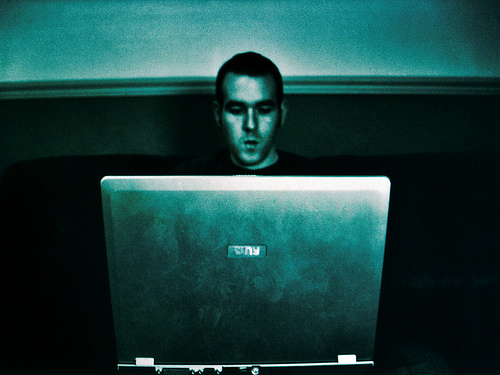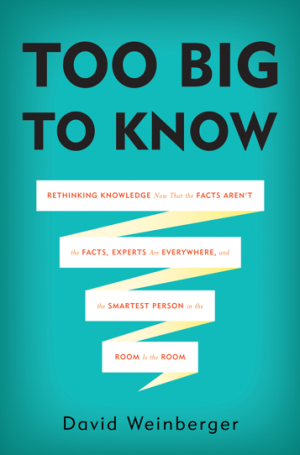By Kyle Palmer
There are more than a trillion Web pages on the Internet. This incredible abundance of information and the ease with which it can be searched sometimes fails to counteract the confusing chorus of anonymous sources.
In his new book Too Big to Know, Harvard researcher David Weinberger articulates this ambivalence while celebrating the Internet’s ability to change the way we come to know things. “We are in a crisis of knowledge,” he writes, “at the same time that we are in an epochal exaltation of knowledge.”
Weinberger argues that society is evolving towards a system of knowledge that values uncertainty, freedom, and sheer volume, where knowledge is “the property of the network rather than that of individuals who know things.” (This process becomes more apparent as more data are sent to virtual “clouds” for storage.)
In his interview with Michael Krasny on KQED's Forum, Weinberger’s book lays out a few helpful principles to help people navigate this new Net-based knowledge system.
EMBRACE THE INTERNET "OPEN ECOLOGY”: Weinberger admits that there is a lot of “crap” on the Internet, but there is also a wealth of previously closed-off information. Scientific papers, newspaper archives, historical documents, and an infinitude of videos and audio recordings, make academic research breathtakingly simple. Skillful navigation of these sources enhances critical thinking and allows researchers and students to make more sense of their world faster.



